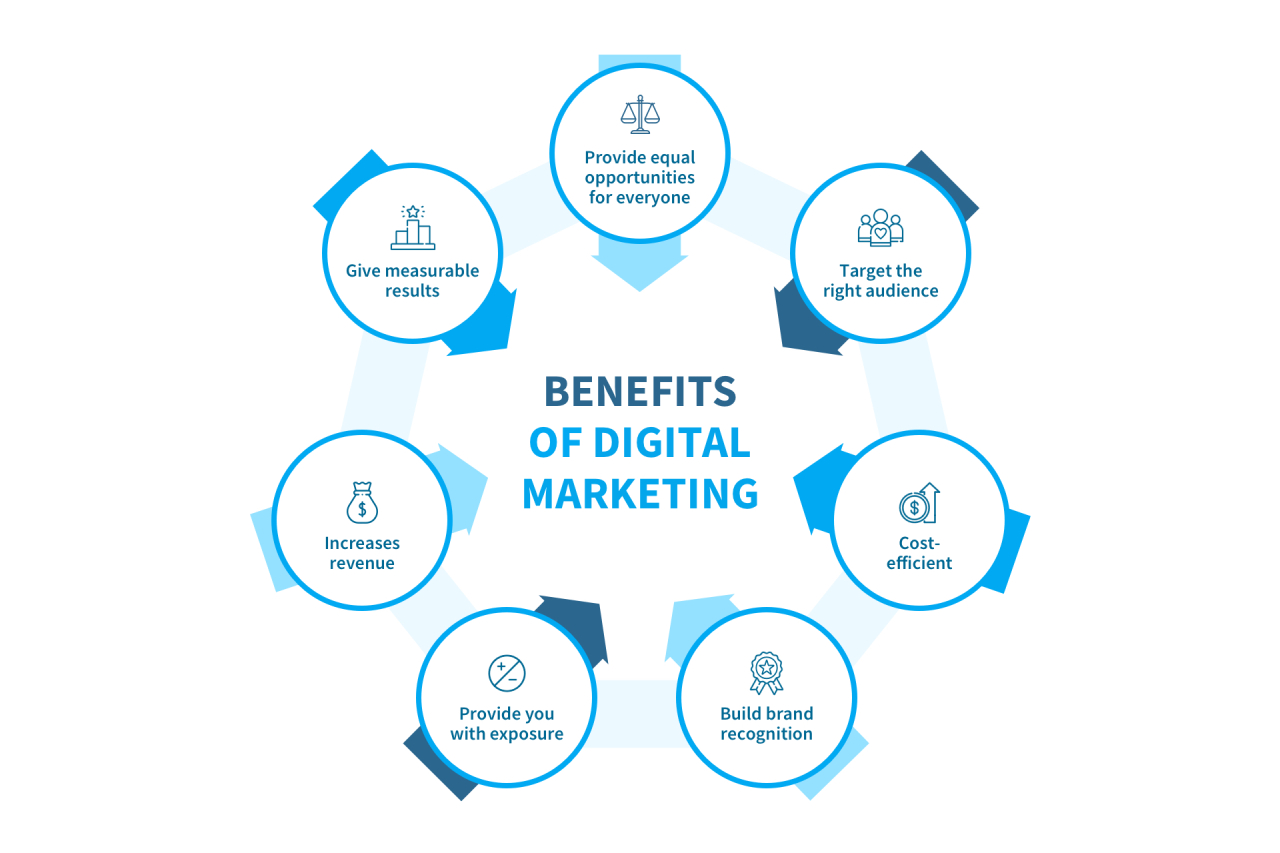Introduction
In the digital age, consumers are constantly connected to the internet through their smartphones, tablets, and computers. They rely on search engines, social media platforms, and online reviews to make informed purchasing decisions. This shift in consumer behavior has made it essential for businesses to establish a strong online presence to stay competitive and relevant. Digital marketing encompasses a set of techniques and strategies designed to promote products or services using digital channels such as search engines, social media, email, content marketing, and more.
Definition of Digital Marketing
Digital marketing refers to the promotion of products or services through digital channels to reach and engage a target audience. It involves various online marketing techniques, including search engine optimization (SEO), pay-per-click (PPC) advertising, social media marketing, email marketing, content marketing, and more. The goal of digital marketing is to increase brand visibility, generate leads, drive website traffic, and ultimately convert prospects into customers.
Importance of Digital Marketing
Digital marketing plays a pivotal role in today’s business landscape due to several key reasons:
Increased Online Visibility
With billions of people using the internet daily, digital marketing allows businesses to expand their reach beyond geographical boundaries. By implementing effective SEO strategies, businesses can improve their website’s visibility on search engine results pages (SERPs) and increase organic traffic. This increased online visibility helps potential customers discover and engage with a business, leading to higher brand exposure and greater opportunities for conversions.
Targeted Audience Reach
One of the major advantages of digital marketing is the ability to target specific audiences. Unlike traditional marketing methods, digital marketing enables businesses to segment their target audience based on demographics, interests, behavior, and other parameters. This targeted approach allows for personalized and relevant messaging, leading to higher engagement and conversion rates. By reaching the right people at the right time, businesses can maximize their marketing efforts and optimize their return on investment (ROI).
Cost-Effective Marketing
Compared to traditional marketing channels such as TV, radio, or print advertising, digital marketing offers a cost-effective alternative. Small and medium-sized businesses with limited budgets can leverage digital marketing techniques to reach a wide audience without breaking the bank. With options like social media advertising and pay-per-click campaigns, businesses can allocate their marketing budgets more efficiently and track the performance of their campaigns in real-time. This level of cost control and measurability makes digital marketing a highly attractive option for businesses of all sizes.
Measurable Results
One of the challenges of traditional marketing is the difficulty in accurately measuring its impact and return on investment. In contrast, digital marketing provides comprehensive analytics and tracking tools that allow businesses to monitor and measure the performance of their campaigns. From website traffic and conversion rates to engagement metrics and bounce rates, businesses can gather valuable data and insights to assess the effectiveness of their digital marketing efforts. This data-driven approach enables businesses to make informed decisions, optimize their strategies, and allocate resources where they generate the best results.
Enhanced Customer Engagement
Digital marketing provides unique opportunities for businesses to engage and interact with their target audience. Through social media platforms, businesses can create a two-way communication channel, allowing customers to provide feedback, ask questions, and share their experiences. This level of engagement fosters a sense of trust and loyalty, strengthening the relationship between the business and its customers. Additionally, personalized email marketing campaigns, blog posts, and interactive content enable businesses to deliver valuable information and create meaningful connections with their audience.
Improved Brand Reputation
In the digital age, a brand’s reputation can spread rapidly through online channels. Digital marketing allows businesses to actively manage and shape their brand image by creating compelling content, engaging with customers, and addressing any concerns or issues promptly. By consistently delivering value and maintaining a positive online presence, businesses can build a strong brand reputation that resonates with their target audience and sets them apart from competitors.
Competitive Advantage
Digital marketing provides businesses with a competitive edge by enabling them to stay ahead of market trends and consumer preferences. By monitoring industry developments, conducting competitor analysis, and leveraging data analytics, businesses can adapt their strategies to align with changing market dynamics. Whether it’s staying updated on the latest SEO techniques or embracing emerging digital platforms, businesses that embrace digital marketing can position themselves as innovative and customer-centric, gaining a competitive advantage in their industry.
Flexibility and Adaptability
One of the key advantages of digital marketing is its flexibility and adaptability. Unlike traditional marketing methods that often require extensive planning and production time, digital marketing campaigns can be implemented quickly and adjusted in real-time. This agility allows businesses to respond promptly to market changes, customer feedback, and emerging opportunities. Whether it’s modifying ad campaigns, optimizing website content, or experimenting with new channels, digital marketing empowers businesses to be nimble and responsive in their marketing efforts.
Integration with Traditional Marketing
Digital marketing complements and integrates seamlessly with traditional marketing channels. By combining online and offline marketing strategies, businesses can create a cohesive and comprehensive marketing ecosystem. For example, businesses can promote their social media profiles through traditional advertising or use QR codes to drive offline customers to their website. This integration amplifies the reach and impact of marketing initiatives, ensuring a consistent brand message across different touchpoints and maximizing the effectiveness of marketing campaigns.
Conclusion
Digital marketing has become an indispensable tool for businesses in the modern era. Its importance lies in its ability to connect businesses with their target audience, enhance brand visibility, drive targeted traffic, and ultimately boost conversions. From increased online visibility and targeted audience reach to cost-effective marketing and measurable results, the benefits of digital marketing are numerous. By embracing digital marketing strategies and staying attuned to evolving trends, businesses can gain a competitive advantage and thrive in the digital landscape.








